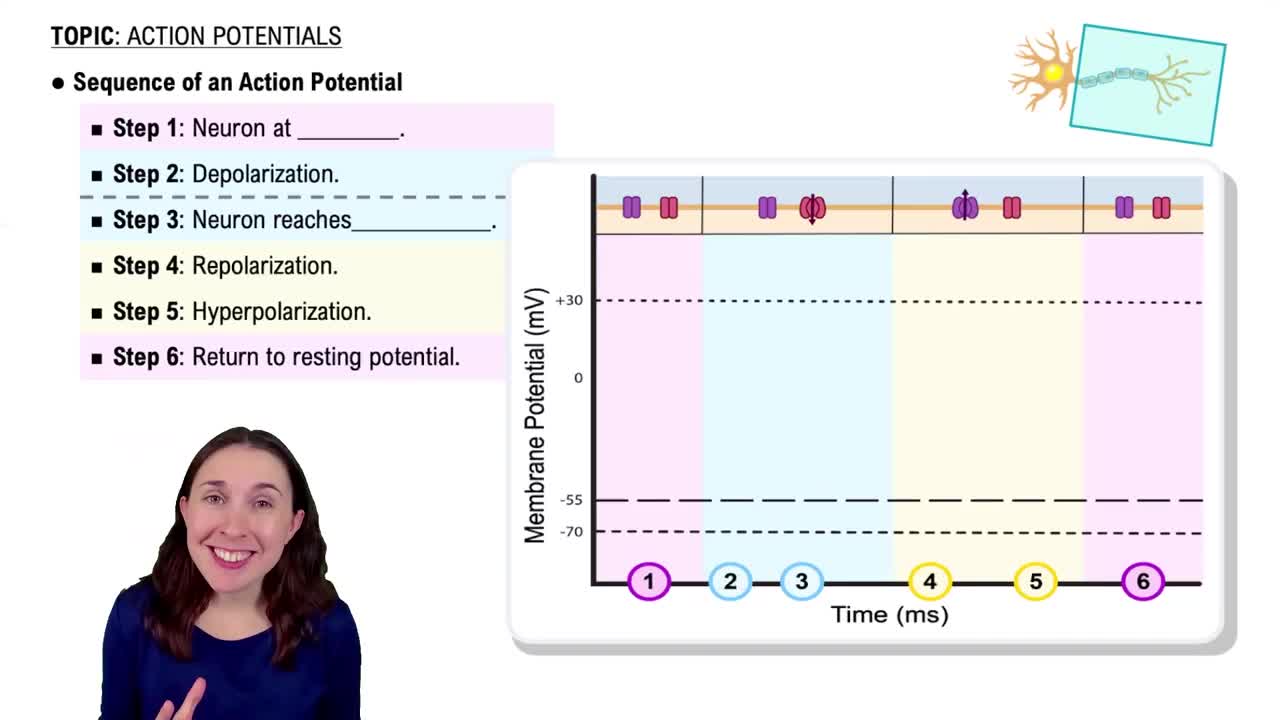During a surgical procedure, an anesthesiologist administers to the patient an inhaled anesthetic agent that opens Cl− channels in the postsynaptic membranes of neurons in the brain. Explain why this would put the patient 'to sleep' for the duration of the surgical procedure.
 Erin C. Amerman 2nd Edition
Erin C. Amerman 2nd Edition Ch. 11 Introduction to the Nervous System and Nervous Tissue
Ch. 11 Introduction to the Nervous System and Nervous Tissue Problem 11.4a
Problem 11.4aAlbert, the patient in question 3, takes the drug lithium, which reduces the permeability of the neuronal axolemma to Na+ (that is, it allows fewer Na+ to enter the axon). Predict the effect this would normally have on his neuronal action potentials. Do you think this drug would be beneficial or harmful, considering his condition?
 Verified step by step guidance
Verified step by step guidance
Verified video answer for a similar problem:
Key Concepts
Neuronal Action Potentials

Sodium Ion Permeability

Lithium's Mechanism of Action

Albert accidentally ingests the poison tetrodotoxin from the pufferfish, which you know blocks voltage-gated Na+ channels. Predict the symptoms Albert will experience from this poisoning.
Explain how an action potential is propagated down an axon in continuous conduction. Why is saltatory conduction faster than continuous conduction?
Predict the effect that tetrodotoxin would have on Albert's muscle fiber action potentials (see question 3). Would it affect end-plate potentials at the motor end plate? Why or why not? (Connects to Chapter 10)
Explain what would happen if depolarization of the trigger zone led to a negative feedback loop instead of a positive one. (Connects to Chapter 1)
Fill in the blanks: The______is the period of time during which it is impossible to stimulate a neuron to have an action potential, whereas the______ is the period of time during which a larger-than-normal stimulus is required to elicit an action potential.